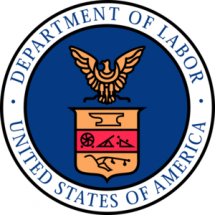Law Offices of John P. Connell, P.C.: An alarming trend emerging in the restaurant industry is the vigor shown by governmental agencies and plaintiff’s lawyers that restaurant owners are allegedly exploiting their employees by misclassifying some of their “employees” as “independent contractors” in violation of the law, which can cause significant fines from governmental authorities and significant damages for plaintiff’s lawyers. By classifying workers as independent contractors, as opposed to employees, it is argued, restaurant owners avoiding paying payroll taxes, unemployment contributions, worker’s compensation insurance and other employee benefits. A common consequence of misclassifying an “employee” as an “independent contractor” is that an employer will pay the misclassified person less than the federally mandated minimum hourly rate of $7.25 an hour and that it will also therefore not pay the worker’s hourly rate plus half that rate for overtime worked for every hour over 40 in a workweek. Misclassification can have serious consequences from the federal law point of view.
A restaurant owner’s misclassification of a worker as an independent contractor is a violation of the Fair Labor Standards Act (the “FLSA”). 29 U.S.C. §201, et seq. The FLSA provides that employers who violate the law are, as a general rule, liable to employees for not only back wages calculated at least at the minimum hourly rate, but also an equal amount in liquidated damages. In September 2012, Boston’s Sunset Grill & Tap, Sunset Cantina and Big City Restaurants were ordered to pay $675,000, which equaled $337,500 in back-wages plus an equal amount in liquidated damages, for 70 workers of those restaurants. Investigators found that some employees were paid “straight time” for all hours worked instead of the required overtime rate of time and a half for hours beyond 40 in a workweek. The employers were also found to have failed to combine hours for employees working at two locations in the same workweek, and therefore failed to pay the correct overtime premium when their combined hours exceeded 40. Still further violations consisted of failing to keep accurate payroll records and failing to distinguish between cash payments and payroll paid by check.
Investigators from the Wage and hour Division’s Boston Office claim that violations of the FSLA in the Massachusetts restaurant industry is “widespread,” and that further investigation of the industry will lead to further fines for additional restaurants. Other recent examples of Massachusetts restaurants found and/or alleged to be in violation of the FLSA include fifteen Not Your Average Joe’s restaurants; the Middlesex Lounge in Cambridge; the Metropolitan Club restaurants in Chestnut Hill, Dedham and Natick; the Noon Hill Grill in Medfield; T.G.I. Friday’s in Framingham and the Upper Crust Pizzeria chain.
As of April 2012, the US Department of Labor levied a whopping total of $1,307,808.00 in fines against Massachusetts restaurants for alleged violations of the FLSA. The costs of these violations to the restaurant owners continue to grow, as the Wage and Hour Division will assess additional civil money penalties against employers, payable to the government, on top of the existing requirement of paying back wages and liquidated damages.
Misclassification of employees as independent contractors also runs afoul of the Massachusetts Wage Act. G.L. c. 149, § 148B. Violations of the Wage Act in this regard allow the Massachusetts Attorney General’s Office to pursue both civil and even criminal actions for failure to pay wages on timely basis and/or pursuant to the correct classification. This statute also allows private plaintiff’s attorneys to pursue civil actions against the employer with permission for the Office of Attorney General, which has become a common claim in Massachusetts courts. Violations of the Massachusetts Wage Act will render an employer, including the President and Treasurer of a corporate employer, individually, liable for unpaid wages, plus triple that amount, plus attorneys fees and all such amounts incurring 12% interest from the date the lawsuit was filed. To make matters worse, the Courts are reading the Massachusetts Wage Act expansively, and not strictly.
Not only should restaurants be cautious to keep accurate records and adhere to overtime payment requirements for its employees, especially those who work at multiple locations, but restaurants should err on the side of caution when determining whether a worker is an “employee” or an “independent” contractor, for the savings of misclassification pale in comparison to the risk for this misclassification being determined by the Department of Labor, the Massachusetts Office of Attorney General and/or a private plaintiff’s attorney.
CONTRIBUTED BY LESLIE BUCKLER
© Law Offices of John P. Connell, P.C.

